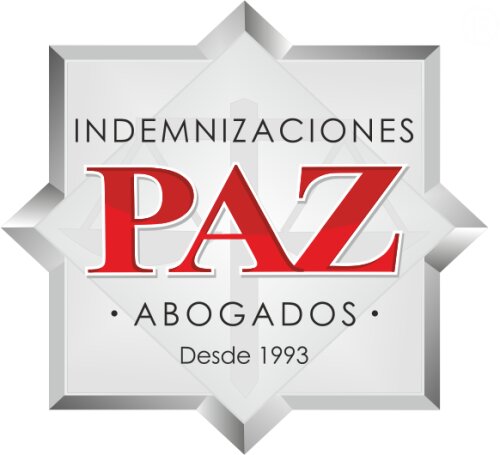Best Transportation Lawyers in Pasto
Share your needs with us, get contacted by law firms.
Free. Takes 2 min.
List of the best lawyers in Pasto, Colombia
About Transportation Law in Pasto, Colombia
Transportation law in Pasto, Colombia, covers the set of regulations and norms that govern how people and goods move within the city and its surrounding areas. As the capital of the Nariño department, Pasto is a vibrant city with a key position in southern Colombia. The transportation system includes public buses, taxis, motorcycles, private vehicles, cargo trucks, and non-motorized options like bicycles. Local authorities regulate transportation intending to ensure the safety, efficiency, and legality of transit operations while protecting the rights of passengers, drivers, companies, and pedestrians alike.
Why You May Need a Lawyer
There are multiple ways in which someone in Pasto may require legal assistance related to transportation. Some of the most common reasons include:
- Accidents involving vehicles, including claims for damages or injuries
- Contesting traffic fines or penalties issued by local transit authorities
- Legal issues with transportation permits or vehicle registration
- Disputes between transportation service providers and clients or employees
- Questions about liability in cargo transportation
- Entrepreneurs seeking to meet legal requirements for starting a transportation business
- Victims seeking compensation for accidents involving public transport
- Challenges related to insurance claims involving transportation incidents
Legal advice ensures that your rights are protected and that you are equipped to comply with local laws and regulations.
Local Laws Overview
Transportation in Pasto is primarily governed by Colombia's national transit code, locally implemented through the Secretaría de Tránsito y Transporte de Pasto. Key legal aspects include:
- Strict regulations for public transport services, including permits and designated routes
- Mandatory insurance (SOAT) for all vehicles circulating in the city
- Rules governing vehicle circulation during "pico y placa" (alternating vehicle restrictions by license plate number)
- Enforcement of speed limits and zero tolerance for driving under the influence of alcohol or drugs
- Requirements for vehicle registration and periodic technical-mechanical inspections (RTM)
- Specific standards for cargo transportation, such as weight and cargo securing regulations
- Regulations for the use of motorcycles, including mandatory helmet use and passenger restrictions in certain zones
- Pedestrian rights and obligations within the urban area
These laws are designed to promote road safety, environmental protection, and order in daily transit. Violations may result in fines, license suspensions, or other sanctions.
Frequently Asked Questions
What should I do if I am involved in a traffic accident in Pasto?
First, ensure the safety of all parties and seek medical help if necessary. Notify the authorities and your insurance provider. Collect evidence and witness information. Avoid admitting fault and contact a lawyer if you face legal or insurance claims.
How can I contest a traffic ticket in Pasto?
You can contest a traffic ticket by submitting a formal appeal to the Secretaría de Tránsito y Transporte de Pasto. It is helpful to gather evidence and consult a transportation lawyer to present your case effectively.
What is SOAT and why is it necessary?
SOAT is the mandatory traffic accident insurance in Colombia that covers medical expenses for everyone involved in a traffic accident. It is a legal requirement for all motor vehicles and must be up to date to avoid penalties.
Are there specific regulations for motorcycle use in Pasto?
Yes, motorcycle users must wear helmets, obey passenger restrictions in certain zones, and adhere to special traffic rules. Non-compliance can lead to fines or vehicle immobilization.
What are the requirements for starting a transportation company in Pasto?
You need proper business registration, special permits from the Secretaría de Tránsito, regulatory compliance with vehicle and driver requirements, and insurance for all units. Legal counsel is recommended to ensure full compliance.
How is public transportation regulated in Pasto?
Public transportation is regulated through route permits, fare structures, and periodic inspections set by local authorities. Operators must comply with safety, service, and legal standards.
What happens if I fail to renew my vehicle’s technical-mechanical inspection (RTM)?
Failure to have an up-to-date RTM can lead to fines and your vehicle being immobilized. The inspection ensures your vehicle meets safety and environmental standards.
Can I operate a taxi or bus without a permit?
No, all public service vehicles, including taxis and buses, require special permits and must meet strict operating requirements. Unauthorized operation can lead to significant fines or even legal prosecution.
What are my rights as a passenger in public transportation?
Passengers have the right to safe, dignified, and legal transportation. If your rights are violated, you may file a complaint with the local transit authority or reach out to a lawyer specializing in transportation law.
How can I resolve disputes with a transportation service provider?
Try addressing the issue directly with the provider first. If unresolved, you may present a formal complaint to transit authorities or seek legal advice for further action, such as mediation or court proceedings.
Additional Resources
The following institutions and organizations can provide further help and guidance on transportation matters in Pasto:
- Secretaría de Tránsito y Transporte de Pasto - Local transit and transportation authority handling permits, fines, and regulations
- Superintendencia de Transporte - National authority overseeing transportation services and protecting user rights
- Defensoría del Pueblo - Public defender’s office handling complaints about public services
- Fundaciones de seguridad vial y ONGs - Organizations promoting road safety and legal awareness
- Local bar associations - Providing directories for transportation law specialists
Next Steps
If you need legal assistance related to transportation in Pasto, consider the following steps:
- Identify the specific transportation issue you are facing
- Gather all relevant documents, such as fines, permits, contracts, or accident reports
- Contact the appropriate local authority or organization for initial guidance
- Consult a local lawyer specialized in transportation law for personalized advice
- Follow your lawyer’s recommendations to resolve your issue efficiently and legally
Seeking early legal advice helps to prevent further complications and ensures your rights are fully protected within the local transportation framework in Pasto, Colombia.
Lawzana helps you find the best lawyers and law firms in Pasto through a curated and pre-screened list of qualified legal professionals. Our platform offers rankings and detailed profiles of attorneys and law firms, allowing you to compare based on practice areas, including Transportation, experience, and client feedback.
Each profile includes a description of the firm's areas of practice, client reviews, team members and partners, year of establishment, spoken languages, office locations, contact information, social media presence, and any published articles or resources. Most firms on our platform speak English and are experienced in both local and international legal matters.
Get a quote from top-rated law firms in Pasto, Colombia — quickly, securely, and without unnecessary hassle.
Disclaimer:
The information provided on this page is for general informational purposes only and does not constitute legal advice. While we strive to ensure the accuracy and relevance of the content, legal information may change over time, and interpretations of the law can vary. You should always consult with a qualified legal professional for advice specific to your situation.
We disclaim all liability for actions taken or not taken based on the content of this page. If you believe any information is incorrect or outdated, please contact us, and we will review and update it where appropriate.









